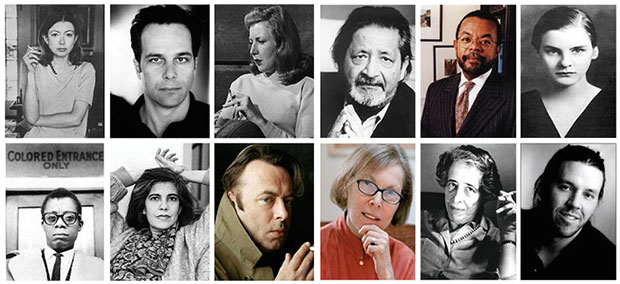About CRC
Journalism is not just about reporting on individual “news events.” More and more, it’s about getting a handle on the complicated reality that frames those events – the ever-shifting patterns of culture that determine how we live and what we make of our lives. As the mainstream media expand their cultural coverage and alternative publications and websites proliferate, there has never been more need for engaging, knowledgeable cultural reporting and analysis.
In 1995, cultural critic and longtime Village Voice writer Ellen Willis responded to the rapid growth of this field by launching a concentration in Cultural Reporting and Criticism within the Institute’s M.A. program. CRC is unique: the only graduate journalism program in the country specifically designed to prepare the next generation of cultural reporters and critics.
The program is dedicated to original, creative, cultural writing; The arts and books and popular culture; the immense variety of social groups, from gay families to Pakistani cabdrivers to obsessive gamers; the explosion of social controversies; the rise of religious fundamentalism, at home and abroad; the changing nature of war; the writer’s own experience: all this is fodder for the cultural journalist. Cultural journalism is for writers with an itch to understand connections—between news event and context, present and past, art and society, public and private. Over the last tumultuous decade, the need for such explorations has only intensified.
The CRC concentration is unique, too, in its emphasis on criticism. We are inspired not by the turgid academic criticism that is taught at some universities, but by the Partisan Review/New Yorker tradition: that is, well-informed, thought-provoking, inventive criticism that addresses a wide, non-specialized audience and that can intervene in a broader cultural conversation. The critics and writers we study (pictured below) include Virginia Woolf, Hannah Arendt, Martha Gellhorn, George Orwell, James Baldwin, Susan Sontag, Joan Didion, V.S Naipaul, Philip Gourevitch, Christopher Hitchens, Janet Malcolm, David Foster Wallace and Pauline Kael.

CRC students are trained to write in a variety of formats, including the cultural essay, the personal essay, the profile, the review, the long-form narrative, the sharp, stylish opinion piece, and the blog post. Graduates have gone on to work as writers, critics, or editors for a bevy of publications, including, currently, the New York Times, the New Yorker, the New Republic, ArtForum, the New York Review of Books, The Paris Review, the Los Angeles Times, the Daily News, Slate, Fader, Entertainment Weekly, Spin, and Harper’s among other places. Several former students have published books: Margaret Eby, South Toward Home; Kent Russell, I Am Sorry to Think I Have Raised a Timid Son; Kate Bolick, Spinster: A Life of One’s Own; Lauren Sandler, Righteous: Dispatches from the Evangelical Youth Movement, One and Only: The Freedom of Having an Only Child, the Joy of Being One, and This Is All I Got: A New Mother’s Search for Home; Katheryn Joyce, The Child Catchers: Rescue, Trafficking, and the New Gospel of Adoption, and Quiverfull; James Westcott, When Marina Abramovic Dies: A Biography; Thomas Chatterton Williams, Self-Portrait in Black and White: Unlearning Race and Losing My Cool: How a Father’s Love and 15,000 Books Beat Hip-Hop Culture; Juana Libedinsky, English Breakfast; Ray Huling, Harvesting the Bay: Fathers, Sons, and the Last of the Wild Shellfishermen; Jason Bailey, Pulp Fiction: The Complete Story of Quentin Tarantino’s Masterpiece; and Jessica Gross, HYSTERIA.
If you are drawn to the big picture—if you suspect that neither conventional journalism training nor academic specialization is right for you—CRC may be what you’re looking for. Our curriculum emphasizes the integration of journalistic skills with the development of each individual writer’s distinctive voice. The CRC program is deeply collaborative, and stresses close working relationships between professors and students and the creation of a supportive intellectual community. You can find links to publications by faculty and students here.